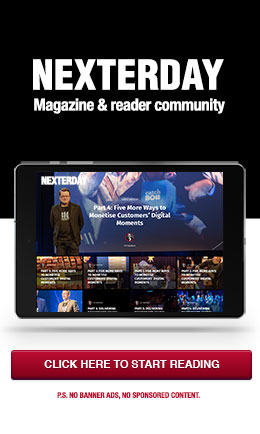Around the World
Posted: October 15th, 2010 | Author: OSS Team | Filed under: Around the World | Tags: BSS, cloud, Comptel User Group, OSS, policy control | No Comments »Scott Stewart CIO Blog…
Telcos Could Rule the Clouds
Scott Stewart, blogger, CIO and cloud computing consultant, highlights a recent blog post by Chirag Mehta that discusses the massive opportunities that telcos (large and small) have in the cloud computing space, and shares his thoughts about how telcos can be well-positioned to provide and distribute virtualized desktops, infrastructure as a service, software as a service, voice, video, cloud-based enterprise applications and productivity tools. The premise of Stewart’s post is his experience of putting together a business case for cloud computing—it was discovered quickly that the telco model was favored (out of public, private, hybrid, etc.) and tagged by his business as the ‘trusted cloud’ model. Why is this? Because with the telco model, you are able to deliver the full benefits of a cloud-based subscription model, but without the dependency of the Internet. Under this model, you are still able to provide the economies of scale with shared services and multi-tenanted cloud—but delivered over a secure, private, high availability network. Stewart believes telcos are so well-equipped for cloud computing because many have already been through multiple evolutions of upgrading their networks to the latest protocols and architectures, and most already have advanced knowledge of cloud architecture and operate modern service delivery platforms. What are your thoughts on telcos and cloud computing? It was certainly a hot topic at our User Group—check out Bob Machin’s recap of the roundtable discussion.
Microsperience…
When the “Best” System is Not Good Enough
As part of Microsperience’s series on sourcing telecoms BSS and OSS, analyst Teresa Cottam looks at some of the common limitations and pitfalls when evaluating BSS/OSS in her post. She highlights a frequently overlooked point: that the “best” system may not be the right system for you. Most people’s concept of “best” is related to function; that is, the range of complexity of functions the system can perform. As Teresa discussed in her recent post BSSOSS: Buy in haste, repent at leisure, there is too much emphasis when buying BSS/OSS on the technical features of the systems and not enough on other factors. People often believe that capturing all of the possible features required now and in the future is a good starting point to map vendors and evaluate their offerings. In fact, it can lead to extended and inefficient tendering processes, additional cost, frustration and sometimes completely the wrong decisions being made. In Teresa’s opinion, the very worst approach is to have extensive feature requirements without any attempt to weigh them intelligently. When a fully-functional system is in place you rarely find that the CSP implements all of the functions they seemed so concerned with when selecting the system. The key takeaway from Teresa’s post is that there is no overarching ideal solution to CSPs’ business problems. Each business has a legacy position, different objectives and challenges, and therefore different requirements. What is great for one business may not be great for another.
Light Reading…
Data Surge Fuels Policy Control Boom
The market for telecom network policy control servers is booming as CSPs scramble to manage the growing volumes of data running over their networks. According to research conducted by Heavy Reading, operators are aiming to use their policy control platforms to develop new charging models and develop tiers of services, so they can move away from the flat-rate mobile data models that currently prevail. More than 70 network operators were surveyed about what prompted their decisions to deploy policy servers or Policy Charging and Rules Function (PCRF). Some of the report’s key highlights include:
- More than 80 percent rated the option “Enable us to apply ‘fair use’ management techniques to better handle network congestion” as either critical or important.
- 80 percent also cited “Enable us to offer tiered or customized services to different classes of customers or to individual customers” as either critical or important.
- More than 75 percent picked out “Improve our ability to meter and charge customers for service features and attributes” as either critical or important.
- And almost the same number identified policy servers’ ability to help carriers “improve quality and depth of network traffic and applications reporting and analysis” as either critical or important.
Graham Finnie, Heavy Reading’s chief analyst, says the key to making the most of policy servers is to be able to change policy conditions/rules without requiring the vendor to rework the code, and to have them interconnected with a number of other key network and SPIT elements.






Leave a Reply